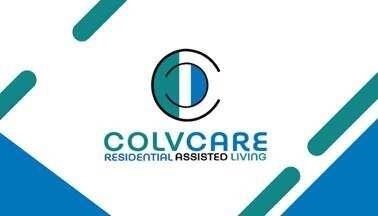Finding the Perfect Residential Assisted Living for Your Loved Ones
Understanding Your Needs and Preferences
When embarking on the journey to find the perfect residential assisted living facility for your loved ones, it is essential to have a clear understanding of their specific needs and preferences. This process begins with a thorough assessment of several critical factors. One of the foremost considerations is the level of care required. Different facilities offer varying degrees of assistance, ranging from basic support with daily activities to comprehensive medical care. Evaluating your loved one’s current health status and anticipating future needs will help in selecting a facility that can provide the appropriate level of care.
Medical needs are another vital aspect to consider. Some individuals may require specialized care for chronic conditions such as diabetes, dementia, or mobility issues. It is crucial to choose a facility that has the necessary medical expertise and resources to manage these conditions effectively. Additionally, understanding any dietary restrictions or nutritional requirements your loved one may have is important. Many residential assisted living facilities offer customized meal plans and can accommodate specific dietary needs, ensuring your loved one maintains a balanced and healthy diet.
Social activities play a significant role in the overall well-being of residents in assisted living facilities. Engaging in recreational activities, social events, and group outings can enhance the quality of life and provide a sense of community. When evaluating potential facilities, consider the variety and frequency of social activities offered and how well they align with your loved one’s interests and hobbies. Personal preferences, such as room layout, privacy levels, and proximity to family members, should also be taken into account to ensure your loved one feels comfortable and at home.
Involving your loved ones in the decision-making process is paramount. Their input and preferences should be taken seriously, as this will greatly impact their comfort and satisfaction with the chosen facility. By actively engaging them in discussions and visits to potential facilities, you can ensure that their voice is heard and respected. Thoroughly assessing these needs and preferences allows families to make informed decisions and better match their loved ones with the most suitable residential assisted living facilities.
Evaluating Affordability and Budgeting Options
When considering residential assisted living for a loved one, evaluating affordability and budgeting options is crucial. The cost of assisted living varies significantly based on the facility’s location, the level of care required, and the amenities provided. Typically, the pricing structure includes a base fee covering room and board, with additional costs for personalized care services, such as assistance with daily activities, medication management, and specialized therapies.
Understanding the different payment options available can help families manage these expenses more effectively. One common method is private pay, where families use personal savings, retirement funds, or income from investments to cover the costs. Another option is long-term care insurance, which can significantly offset the expenses associated with assisted living. Policies vary, so it is essential to review the terms and coverage details to ensure they align with the particular needs of the loved one.
Government assistance programs can also provide financial relief. Medicaid, for instance, offers support for low-income individuals who meet specific eligibility criteria. Additionally, veterans and their spouses may qualify for benefits through the Department of Veterans Affairs, which can be used to subsidize the cost of assisted living. Researching these programs and understanding the application process can provide significant financial aid.
Effective budgeting and planning are critical for managing long-term care expenses. Families should start by assessing their current financial situation, including income, savings, and any existing insurance policies. Creating a comprehensive budget that outlines monthly expenses and potential care costs can help identify any financial gaps. It is also advisable to consult with a financial planner who specializes in elder care to explore various strategies for funding assisted living.
By thoroughly evaluating affordability and exploring all budgeting options, families can make informed decisions that ensure their loved ones receive the quality care they deserve without compromising financial stability. This comprehensive approach allows for a balanced consideration of both immediate needs and long-term financial health.
